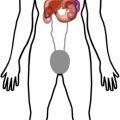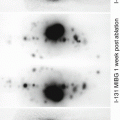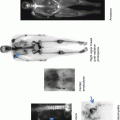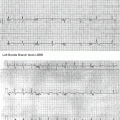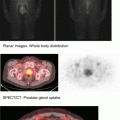and Bruce J. Barron2
(1)
Loyola University Medical Center, Maywood, Illinois, USA
(2)
School of Medicine, Emory University, Atlanta, USA
1 Tc-99m Tetrofosmin (Myoview)/Tc-99m Sestamibi (Cardiolite)
Indication
Parathyroid adenoma, cardiac stress scan, breast cancer
Tc-99m
Generator produced. Mo-99 Generator → Tc-99m pertechnetate (TcO4 1−) undergoing isomeric transition → Tc-99 (half-life of 211,000 years) β- decay → ruthenium-99. TcO4 1− Oxidation state of +7 not suitable for medical applications.
TcO4 1− (+7) tetrofosmin/sestamibi with Stannous ion → Tc-99m (+4 Tetrofosmin/+3 Sestamibi) → lipophilic, cationic Tc-99m complex. t phys 6 h. Emits gamma 140 KeV (89 %), 18.37 keV (4.0 %), 18.25 keV (2.1 %).
Mechanism
Tetrofosmin/Sestamibi.
Lipophilic structure: Passive diffuse to the cell → uptake by mitochondria due to membrane electric potential → retention due to electrostatic interactions → trapped within the mitochondria.
Oxyphil cells: Secreting cell → higher mitochondria concentration → higher tracer retention.
Wash out by Pgp (P glycoprotein). Tumor cell [Pgp] expression is related to tumor multidrug resistance (breast CA).
Myocardium
Uptake is proportional to blood flow. First-pass extraction tetrofosmin 50 %, sestamibi 60 %, total myocardial uptake up to 2 % of the injected dose, cardiac wash-out tetrofosmin> > sestamibi.
Parathyroid
Parathyroid adenoma expression of oxyphil secretion cells is higher than normal thyroid gland. Parathyroid adenoma will show tracer retention on delay images.
Breast Cancer
Mitochondrial expression is higher in malignant and inflammatory cells compare with benign cells. Only Tc-99m sestamibi is FDA approved for breast imaging. Known as Miraluma.
Distribution
Early 30 min Thyroid salivary gland, heart >>> liver, kidney.
Late >60 min Biliary tract, GI, kidney, bladder > liver, heart >> thyroid, salivary gland.
Clearance
Bile to GI and kidney.
Distribution and Clearance
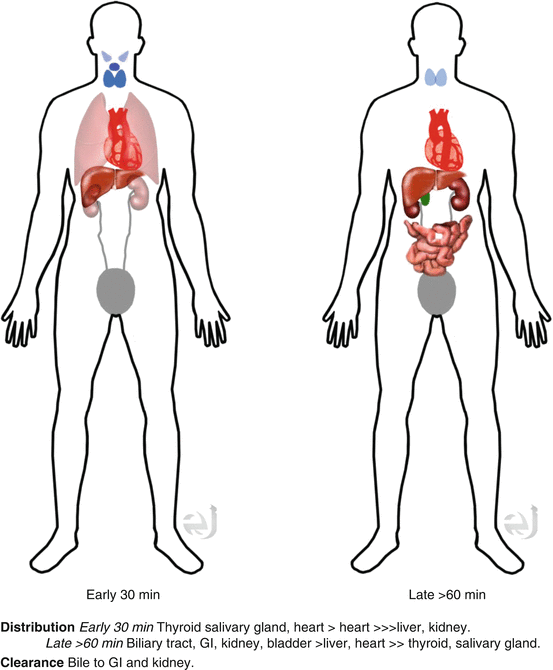
2 Tl-201 Chloride
Indication
Cardiac stress test (perfusion agent for rest study in a dual isotope cardiac stress scan Tl-201/Tc-99 sestamibi) and viability (redistribution). Brain tumor or thyroid Ca localization (rarely used).
Tl-201
Cyclotron produced t phys 73.1 h. For Tl chloride, t biol 9.8 days, t eff 2.4 days. Decays by Electron capture to Mercury (Hg-201), which emits X ray 69–80 KeV (94 %), gamma 135 keV (2.0 %), 167 keV (10 %).
First-Pass Extraction Rate
85–91 % (tetrofosmin 50 %, sestamibi 60 %) Total myocardial uptake is 3 % of the injected dose. Peak at 10 min.
Mechanism
Potassium analog; transports across the myocardial membrane via NA+-K+ ATPase. Perfusion agent. Does not cross blood-brain barrier (BBB). Can be used for tumor localization scan – BBB breakdown → increase uptake of tracer by tumor cells.
Redistribution
Dynamic exchange of Tl-201 between circulation and intracellular.
Viability Study
Delayed imaging: Tracer redistribution in a fixed defect → presence of hibernating tissue → patient will benefit from revascularization.
Brain Tumors
Usually used to differentiate brain lesions from lymphoma and infection in HIV/AIDS patients. Positive uptake → lymphoma.
Imaging
20 % window 80 KeV peak.
Protocol Cardiac
Rest component of the Tc-99m dual study. (1) Fasting for 4 h. (2) Inject 3–3.5 mCi Tl-201 IV (3) after 10 min SPECT images 64 frames 20 % window for 80 KeV peak. (4) Stress images with Tc-99 MIBI/Myoview. (5) If fixed defect → delayed SPECT images with 20 % window 80 KeV peak for redistribution.
Protocol Brain
planar images followed by SPECT.
Dose
Cardiac scan 3–3.5 mCi. Brain 5.0 mCi.
Critical Organ
Testes in males, kidneys in females.
Distribution
According to the cardiac output. 5 % coronary arteries, 20 % kidneys. Does not cross BBB.
Clearance
Myocardium, kidneys, thyroid, liver, and stomach.
Stay updated, free articles. Join our Telegram channel

Full access? Get Clinical Tree


